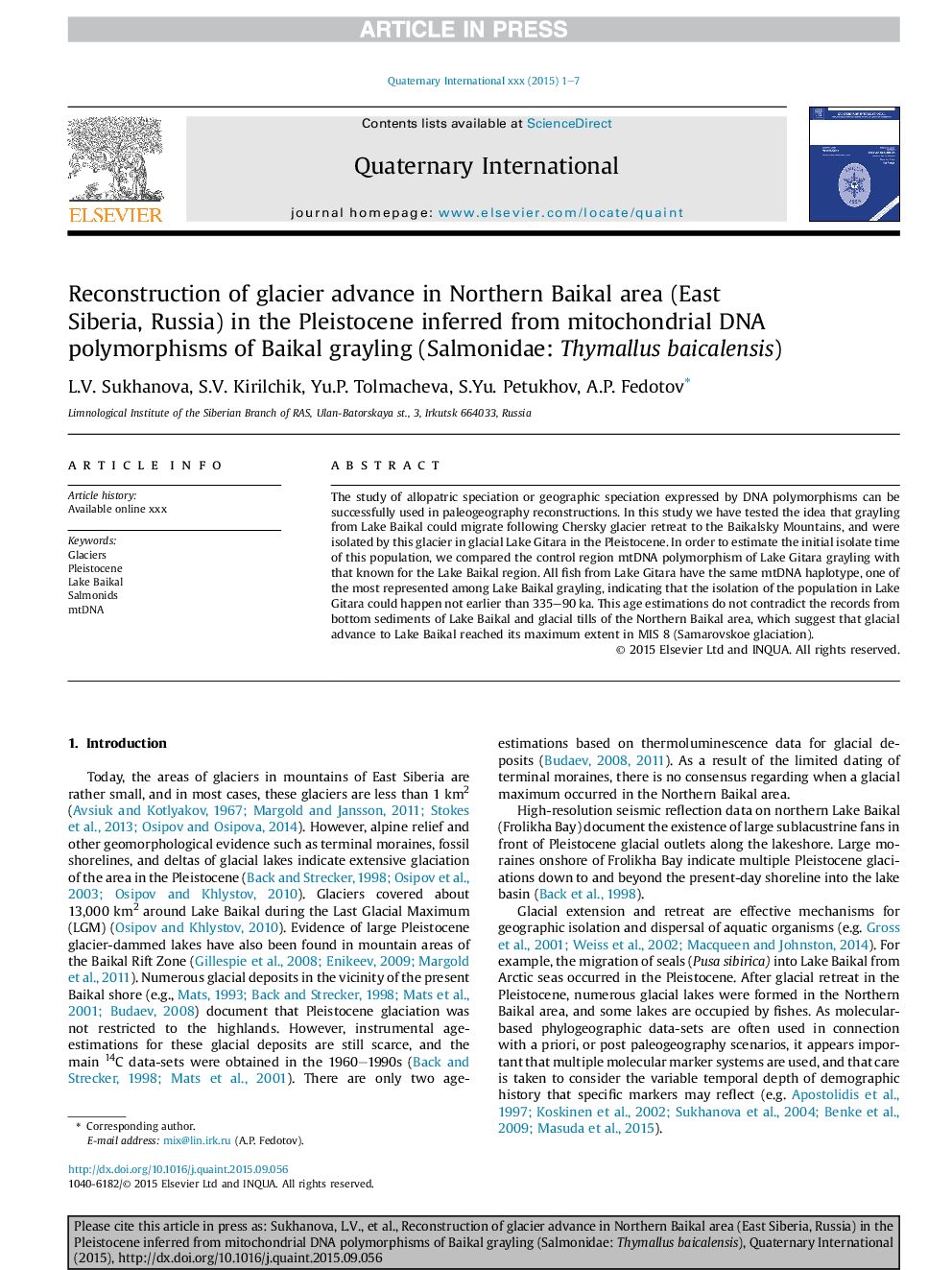| Article ID | Journal | Published Year | Pages | File Type |
|---|---|---|---|---|
| 5113966 | Quaternary International | 2016 | 7 Pages |
Abstract
The study of allopatric speciation or geographic speciation expressed by DNA polymorphisms can be successfully used in paleogeography reconstructions. In this study we have tested the idea that grayling from Lake Baikal could migrate following Chersky glacier retreat to the Baikalsky Mountains, and were isolated by this glacier in glacial Lake Gitara in the Pleistocene. In order to estimate the initial isolate time of this population, we compared the control region mtDNA polymorphism of Lake Gitara grayling with that known for the Lake Baikal region. All fish from Lake Gitara have the same mtDNA haplotype, one of the most represented among Lake Baikal grayling, indicating that the isolation of the population in Lake Gitara could happen not earlier than 335-90Â ka. This age estimations do not contradict the records from bottom sediments of Lake Baikal and glacial tills of the Northern Baikal area, which suggest that glacial advance to Lake Baikal reached its maximum extent in MIS 8 (Samarovskoe glaciation).
Related Topics
Physical Sciences and Engineering
Earth and Planetary Sciences
Geology
Authors
L.V. Sukhanova, S.V. Kirilchik, Yu.P. Tolmacheva, S.Yu. Petukhov, A.P. Fedotov,
